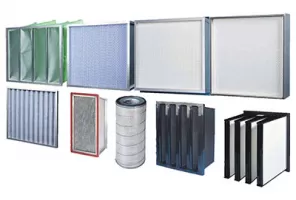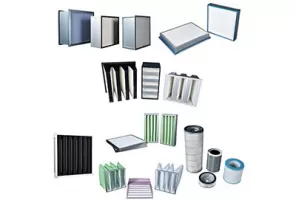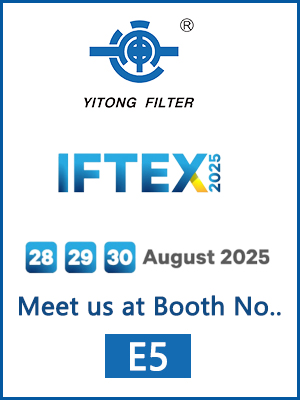 April 01, 2024
April 01, 2024
Activated carbon air filters have become indispensable in various industrial sectors due to their exceptional ability to remove contaminants and pollutants from the air.
From manufacturing facilities to chemical plants, these filters play a crucial role in maintaining air quality and ensuring a safe working environment. In this comprehensive guide, we will delve into the workings of activated carbon air filters, their applications across different industries, and the key factors to consider when choosing the right filter for your specific needs.
Understanding Activated Carbon Air Filters:
Activated carbon, also known as activated charcoal, is a form of carbon processed to have small, low-volume pores that increase the surface area available for adsorption or chemical reactions. This unique structure allows activated carbon to effectively capture and trap a wide range of airborne contaminants, including volatile organic compounds (VOCs), odors, gases, and particulate matter.
Industrial Applications:
Manufacturing: In manufacturing facilities, activated carbon air filters are used to remove fumes, dust, and harmful chemicals emitted during various production processes. They help maintain air quality standards, protect workers' health, and ensure compliance with environmental regulations.
Chemical Processing: Chemical plants rely on activated carbon air filters to purify air contaminated with toxic gases, solvents, and other hazardous substances. These filters play a critical role in preventing air pollution and minimizing the risk of exposure to harmful chemicals for workers and nearby communities.
Pharmaceutical Industry: Clean air is essential in pharmaceutical manufacturing to prevent contamination and ensure product quality. Activated carbon air filters are employed to remove airborne particles, bacteria, and odors, maintaining sterile conditions in cleanrooms and laboratories.
Food Processing: In food processing facilities, activated carbon air filters help eliminate odors, smoke, and volatile compounds generated during cooking, frying, and other food preparation processes. They contribute to maintaining a hygienic environment and preserving the quality and flavor of food products.
Environmental Remediation: Activated carbon air filters are used in environmental remediation projects to mitigate air pollution and remove contaminants from industrial emissions. They play a vital role in reducing the impact of industrial activities on surrounding ecosystems and human health.
Key Considerations for Choosing Activated Carbon Air Filters:
Adsorption Capacity: The adsorption capacity of activated carbon air filters determines their effectiveness in removing specific contaminants. Consider the types and concentrations of pollutants present in your industrial environment to select filters with suitable adsorption capacities.
Particle Size: Different activated carbon air filters are designed to capture particles of varying sizes. Choose filters with pore sizes appropriate for the particles you need to remove, ranging from large dust particles to microscopic airborne pollutants.
Filtration Efficiency: Evaluate the filtration efficiency of activated carbon air filters based on industry standards and performance ratings. Look for filters with high-efficiency ratings to ensure thorough contaminant removal and optimal air quality.
Maintenance Requirements: Consider the maintenance requirements of activated carbon air filters, including filter replacement frequency and cleaning procedures. Opt for filters that are easy to maintain and compatible with your facility's maintenance schedule.
Conclusion:
Activated carbon air filters are indispensable tools for maintaining air quality and ensuring a safe and healthy working environment in various industrial settings. By understanding their principles of operation, applications, and key selection criteria, industrial stakeholders can make informed decisions when choosing activated carbon air filters to address their specific air purification needs. Investing in high-quality filters and regular maintenance not only enhances indoor air quality but also contributes to environmental sustainability and regulatory compliance.
 Apr. 10, 2024
Types of Air Filters Used in Mushroom Farming
Apr. 10, 2024
Types of Air Filters Used in Mushroom Farming
 Jun. 25, 2024
Best Air Filter for HVAC
Jun. 25, 2024
Best Air Filter for HVAC
 Jun. 19, 2024
Key Points in the Selection and Design of Filters for Ventilation and Air Conditioning Systems
Jun. 19, 2024
Key Points in the Selection and Design of Filters for Ventilation and Air Conditioning Systems

